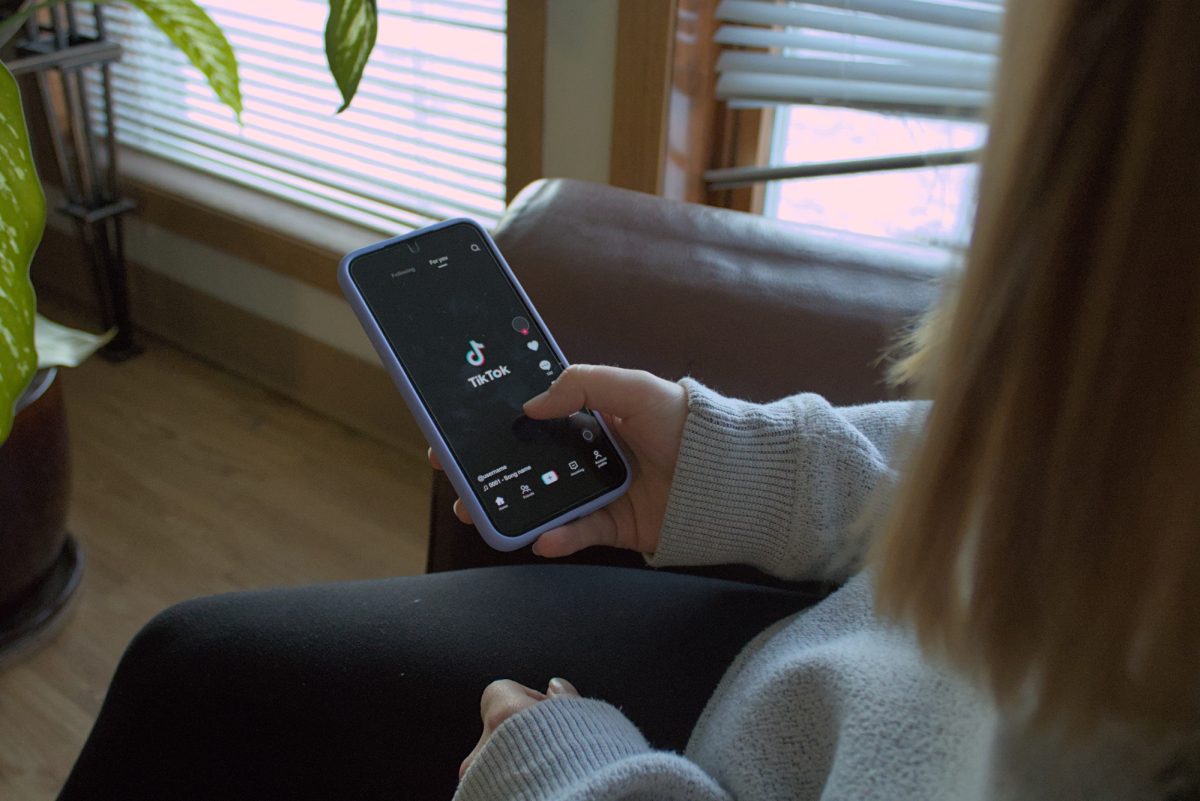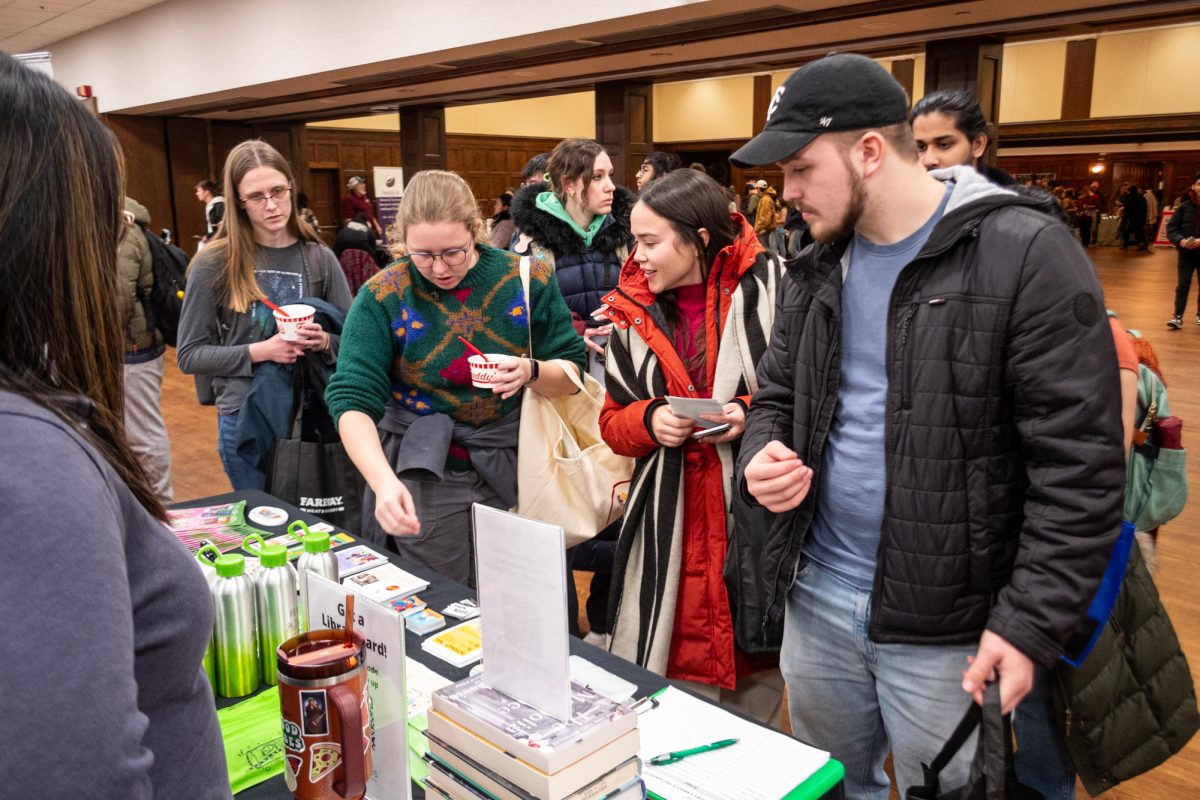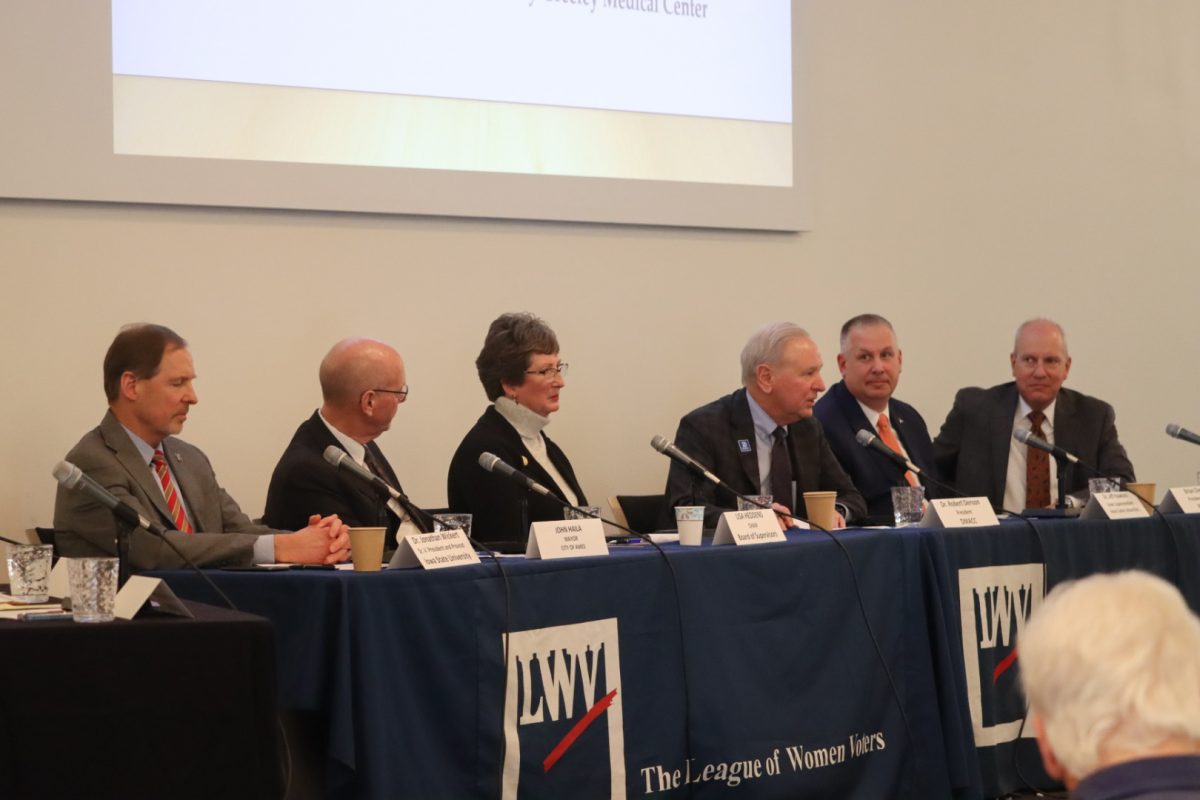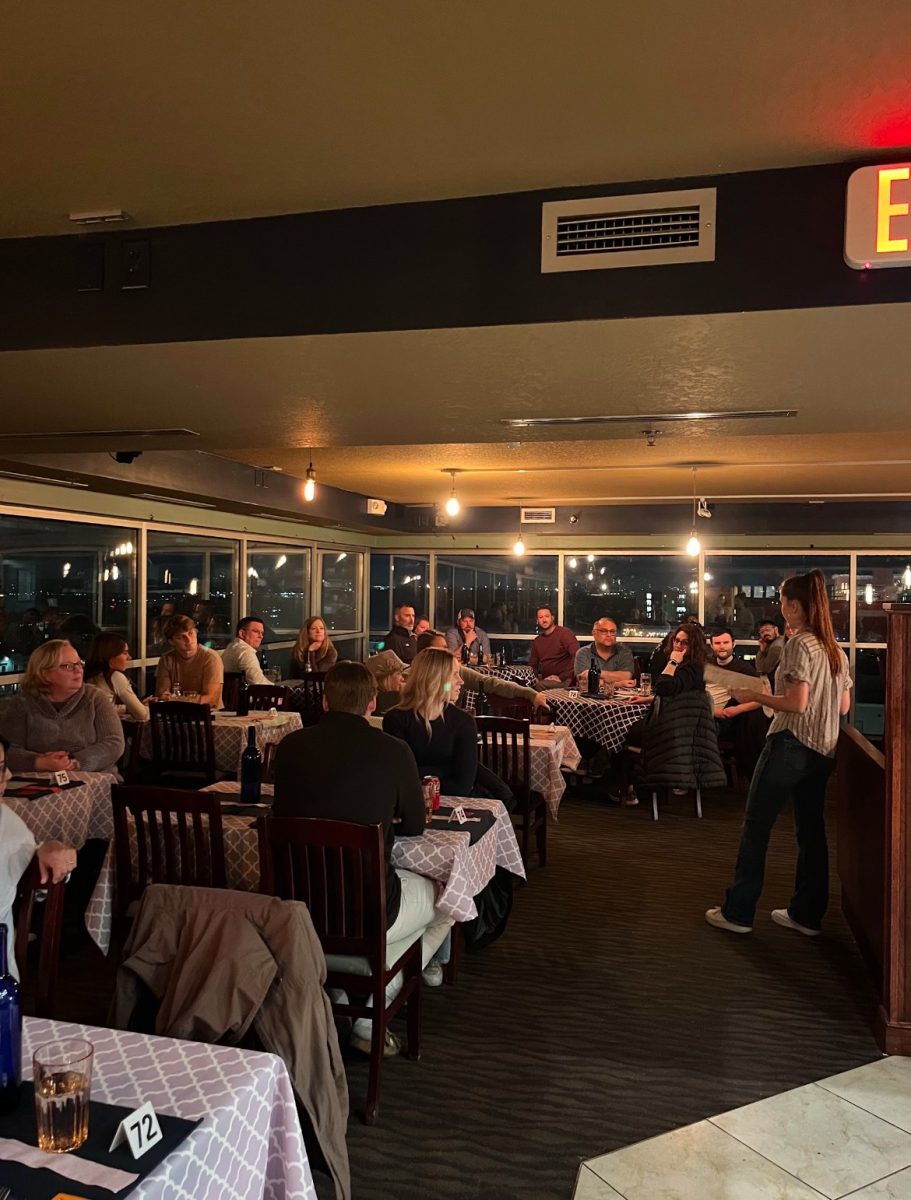30 years is just the beginning
April 1, 2002
During the summer of 1971, an ISU student named Dennis Brumm began to question his sexuality.
Brumm’s search for an answer began when he read a Life magazine article featuring Jack Baker, the openly gay president of the student body at the University of Minnesota. The magazine published Baker’s campaign poster, which pictured Baker wearing jeans and high heels. The caption read “Put yourself in Jack Baker’s shoes.”
Brumm decided to write Baker a letter outlining his own sexual confusion. Within weeks, Baker responded to Brumm’s letter.
“He told me I was no different than lots of other gay men in what I was experiencing, and he told me about a gay community center in Minneapolis,” Brumm said. “He suggested I visit it.”
On a Friday after class, Brumm drove to Minneapolis and spent hours outside the building while he mustered up the courage to go inside.
At the Gay House, he learned about a gay student who was very active on the University of Iowa campus. Through correspondence with him, Brumm learned about talks of a liberation movement at Iowa State.
“He gave me Joe Franko’s phone number on campus, saying that Joe was planning on starting a gay liberation group at Iowa State,” he said. “I phoned Joe and met him, and just by coincidence of timing, it all fell into place that I was there when it all began.”
The gay liberation movement is in its 30th year at Iowa State. It all began during the 1971 -1972 academic year thanks to a student organization first known as the Gay Liberation Front.
“I wanted a community of friends where I could be open and honest about who I was,” Franko said of starting the liberation group. “Life was very tough for gay people in those days. Beside that, I had enough of an ego to think I could make a difference in life on campus, and I think we did make a difference in those days.”
Public emergence
During the first week of December 1971, a letter to the editor was published in the Iowa State Daily in protest of a play being performed on campus.
The letter criticized the university for allowing the production “Boys in the Band,” a drama about a gay birthday party, because of its outwardly homophobic attitudes toward the gay lifestyle.
“We think it is abominable when an institution devoted to the search for truth perpetuates the ignorance of stereotyping and the idiom of the locker room,” the letter read. “We can no longer remain silent when the ideals of this university have been perverted by sensationalism.”
The letter was signed “Gay Liberation Front.”
This was the first time the gay movement was publicly visible at Iowa State.
Several response letters were published in the Daily with heavy criticism of the initial letter.
Franko, the author of the first letter, decided to respond once more.
This time, however, he signed his name on the letter.
“I remember all hell breaking loose for a while after that,” Franko said. “The day the letter came out I got hate calls on my phone, and several friends called to offer support, while some called to say they didn’t want to have anything to do with me again.”
The first public meeting
“When I think back now, I think about how much courage all of us had in the beginning,” Franko said. “We met in the [Young Women’s Christian Association] on campus, and the first meeting the campus police had come by to tell me they would be standing around outside.”
As the group met for its first public meeting, rumors were spreading that men with guns in pickup trucks were circling campus “looking for faggots,” Franko said.
“I don’t think I ever heard the rumor at the time, and I’m pretty grateful to have avoided it. I was already fearful enough when I went to that meeting,” Brumm said. “The tension at that initial meeting was not like anything I’d ever felt before, or have felt since.”
Brumm was 19 years old at the time of the meeting and had only told a few people he was gay. At the first meeting, he had trouble distinguishing between his fear and paranoia.
“Having spent eight or so years of my life hiding what my sexual feelings were from my peers and myself, it was rough unlearning all the tricks my mind had used and lessons society had taught me up to that point, all of which told me I was doing the wrong thing by going to the gay liberation meeting,” Brumm said. “Funny though – somehow I knew it was the right thing.”
“I don’t think there were any of us in that first meeting who weren’t at least nervous,” Franko said. “I remember starting off being scared, and ending the night being elated. We had done it – we had the first openly gay meeting on campus.”
Subsequent years
After the first year, the group adopted a different name – the Gay Man’s Rap Group. The name had less political connotation attached to it which Brumm felt would attract more members.
“The first year of December 1971 to May 1972, there were very few of us, so when we called for a meeting the next school year, it was surprising as maybe 25 people showed up at the first meeting . ” Brumm said.
One of the new faces in 1972 was ISU student Harold Osler.
Osler found out about the meeting through an advertisement in the Daily.
“It was a Sunday night and I had to walk around the block to get my courage up to go in,” Osler said.
The group organized the first ISU gay dance May 12, 1973, at the Unitarian Church, 1015 N. Hyland Ave. The dances were repeated numerous times in the years that followed.
“You have no idea how liberating it was to dance with another man on campus,” Franko said. “In that act of dance there was love, acceptance, joy, sexuality and pride. I will remember until the day I die those first dances, and those first real feelings of joy and pride in being who we were.”
Some of the dances were organized along with the Lesbian Alliance, which surfaced at Iowa State in 1972.
In the first few weeks of February 1974, the Government of the Student Body allocated more than $750 to the now-named Gay People’s Liberation Alliance. For the first time, the liberation movement group was recognized as a campus organization.
In October 1974, the group organized the first Denim Day. All gay people and their allies were encouraged to wear denim to show their support.
“It was a real consciousness-raising experience,” Franko said. “Denim was ubiquitous, and so many poor straight guys would find themselves the butt of some pretty cutting comments.”
Osler said the event was meant to elicit discussion on campus.
“The idea was that since so many straight people seem to think they can `spot one a mile away,’ lets make it easier for them,” Osler said. “And since everyone wore blue jeans, it would point out that you can’t spot a gay person by what they wear.”
Being gay in the ’70s
“I read the Daily online, and see that `conservative’ Christians are still having a snit-fit about anything openly gay,” Osler said. “It seems that some things will never change.”
Brumm said he didn’t experience much criticism at Iowa State after coming out.
“There was actually minimal outward harassment, as I imagine there still is,” Brumm said. “I think that most Iowans actually do have a sense of `what you do is your own business and I won’t bother to disagree with you,’ and though I can remember instances of discrimination, violence and so forth in Ames, I think they were relatively few and far between.”
One instance of violence against Brumm came on a Sunday night after a liberation group meeting.
“We were eating, laughing and generally just having a fine meal minding our own business when a drunk, short guy started slurring epithets in our direction,” Brumm said. “He was sitting right behind me so I got to hear him the most clearly.”
The group ignored the man, but he continued.
When the men were ready to leave, the drunk guy stood up and said he was going to “beat the shit out of us queers,” Brumm said.
Brumm and the rest of the group left the restaurant and got into their car to leave. The drunk guy reached into the window and hit Brumm in the jaw. One of his friends pulled him away.
“I’m glad he did, as I had the lethal thoughts and felt a fury that I rarely, if ever, have experienced other than that instant,” Brumm said.
In the ’70s, discussion of homosexuality was just emerging.
On campus, that meant a lot of gay people felt oppressed and scared to come out.
“People certainly were scared, and rightfully so at first,” Brumm said. “Being openly gay was new; no one knew what to expect. It didn’t always turn out good for people either. That may have changed a lot, but look at [Jerryn Johnston] in Gilbert High School still today.”
“I was grateful for the allies I had among straight people on campus,” Franko said. “Without them, it would have been a much tougher road. In coming out on campus, I lost some friends, but I gained a whole lot of others.”
Franko said coming out on campus can provide people with a sense of personal power.
“Every failure to be who you are diminishes you,” Franko said. “On the other hand, every time you come out in the face of fear, you find that place of personal power inside of yourself – a power you can draw on to continue to grow and become more fully who you really are.”
Looking back fondly
Being a part of the movement meant being with people facing the same fears.
“Personally, to me it was about attempting to find a community where I’d fit in,” Osler said. “Here were people like me – I could drop the mask.”
Being a part of the movement meant feeling a sense of friendship.
“Those of us who were involved with any of the several differently named groups felt a camaraderie. There’s no doubt about that,” Brumm said. “And I’m sure there is this feeling of one, as being in a minority that’s experienced very similar life situations gives one a certain sense of sharing and shared experience.”
Being a part of the movement meant being an activist for gay rights.
“I needed to be a part of it regardless of where I was and would have been,” Brumm said. “I think the fact that I came out via the politics of gay liberation instead of through simply a social network has been very important and very good for me.”
Franko, Osler and Brumm along with many others, were all an integral part in a movement that is still active through the Lesbian, Gay, Bisexual, Transgender Ally Alliance and other student organizations on the ISU campus.
“I’m very proud of the part I played and look back with fondness and pride in those days,” Franko said.
At the time, being an activist in the gay liberation movement was just a part of their everyday lives.
“It was in many ways the primary focus of my life,” Brumm said. “It molded me.”
The gay liberation movement was and is always working to educate and overcome the social oppression that still exists in our society.
“The power of truth to overcome ignorance and hatred always moves me to tears,” Franko said. “I hope that never changes.”






